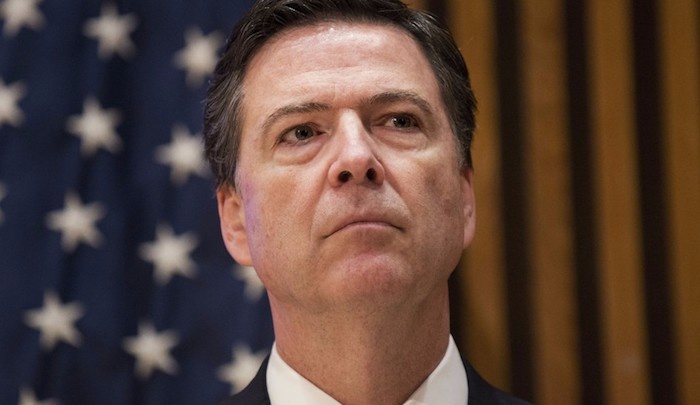When the Chief Justice of the U.S. Supreme Court, John Roberts, “ruled” in 2012 that Obamacare’s individual mandate was actually a “tax,” even though the Democratic authors of the legislation stated the term “penalty” was purposefully used so that the mandate would not be considered a tax, a massive blow was struck against the rule of law.
It certainly wasn’t the first time the rule of law has been twisted around like a stick of licorice, but this time the court caught the attention of the frequently inattentive citizens; something was terribly wrong with a system they too often took for granted.
The reason was that Obamacare was a massive, controversial piece of legislation passed in 2009 that affected every adult’s pocketbook. It had been passed on a completely fabricated set of assumptions – lies – literally in the dead of night, and its negative consequences were already rippling through the national economy.
FBI Director James Comey’s words Tuesday, like Justice Roberts’ words in 2012, will outlive him. They are one more hammer blow to the shrinking credibility of our institutions.
Yes, the Director explained in stark, clear detail, the Former Secretary of State lied repeatedly; she knowingly broke the law; she recklessly endangered the nation. These are the plain facts.
However she did not intend to do so.
The rule of law under which we all have to live, Director Comey instructed us by example, is situational. If something is inconvenient, or if it is too controversial, or if it is potentially personally dangerous, then the rule of law becomes a mere challenge to be overcome, not a standard to be upheld.
What have the American people learned here?
My guess is the big takeaways for “mere” citizens are; laws are for stupid people, or the inconsequential or unimportant person, or the foolishly “unconnected” person.
If the goal of law is justice, then the official perversion of law becomes corruption.
Lies and the corruption they propagate have always been the coin of the political realm, of course, from the dawn of human history. Yet, in our Constitutional Republic, the virtue required by the once dominant Judeo-Christian ethos, separation of powers, the sovereign states, and the free press have always been a brake on widespread official corruption.
But no more it seems.
There are many reasons why this is happening; none more important than the collapse of personal virtue in synchromesh with the disassociation of the Judeo-Christian values, of course.
But there are other consequences and reasons as well:
The rise and growth of the vast and unaccountable “administrative state” of the government – beyond the influence of voters and the willingness of Congress to control – metastasizing like a cancer feasting on the host.
The Congress itself creating a web of self-protecting rules and laws, and a network of corporate and interest group cronyism that produces or promises great personal wealth, in and out of office.
The executive branch, unchecked by a feeble Congress, succumbing to the allure of perpetual political power and wealth, unwilling or unable to attend to the serial disasters created by the government itself because it endangers that power.
Finally the courts and judicial system at large – itself now in some degree a self-perpetuating and self-aggrandizing system that needs an ever increasing volume of suffering to be corrected and villains to be incarcerated to feed its appetite for power, and increased funding of course. It exists more and more as the self-appointed arbiter of everything in the cultural and social life of the nation, beyond any warrant, and yet unchallenged, again, by the people’s Congress who carry the Constitutional responsibility to restrain that very impulse.
Now, toilets can be only so big to benefit an industry; the assignment of whom can pee where and whom can marry whom is proclaimed to please a wealthy interest group. The examples are endless.
This is the corruption of the law that the Founder’s hoped to avoid. Obviously, it was never, nor could it ever be a perfect system, but, it’s the best ever devised. And those of us who have spent time in other countries always marvel at how good it works in comparison.
But, when our institutions are no longer respected or trusted by its citizens, where does that leave us, and what does it say about our future? Where does it leave the appetite and impulse to do the right thing?
More importantly, what is the way out of this type of institutionalized corruption?

